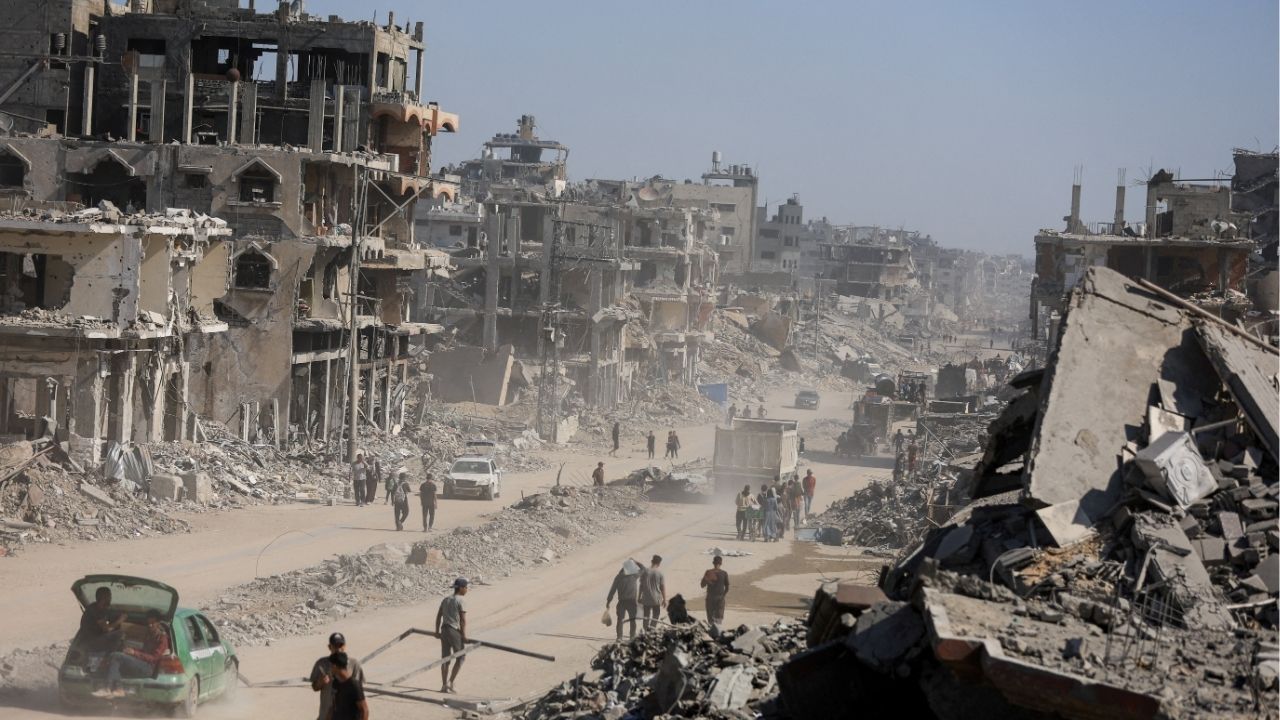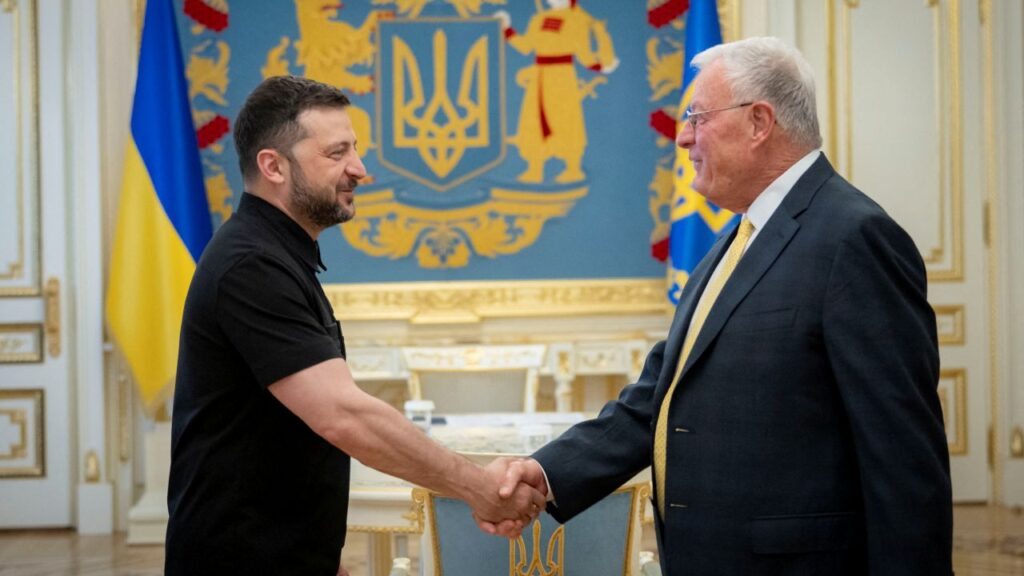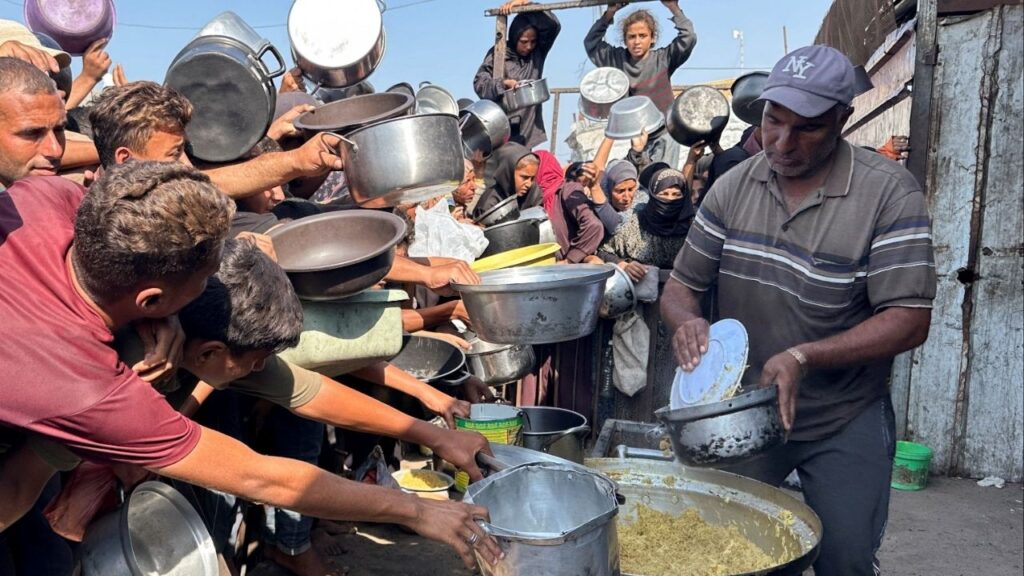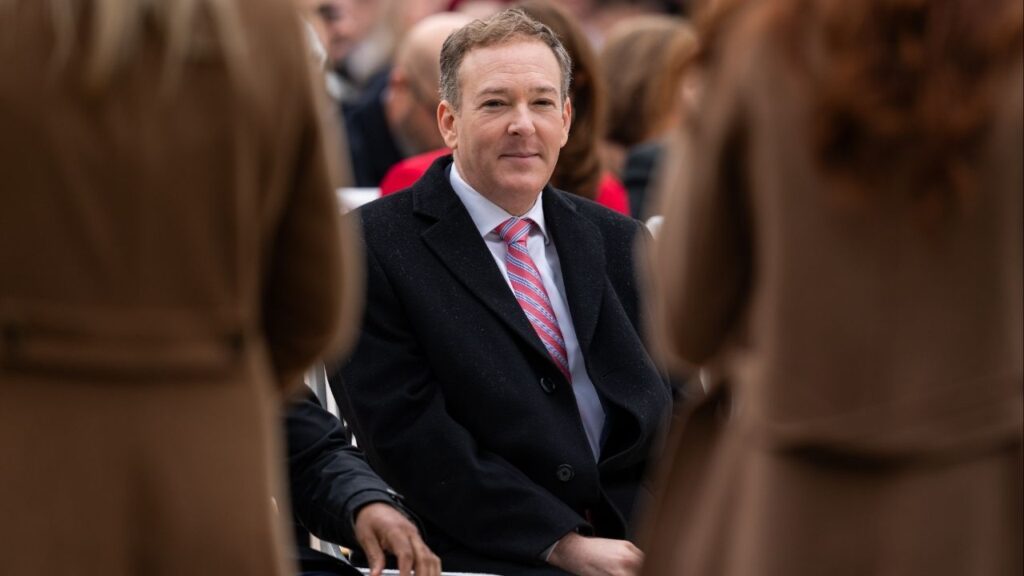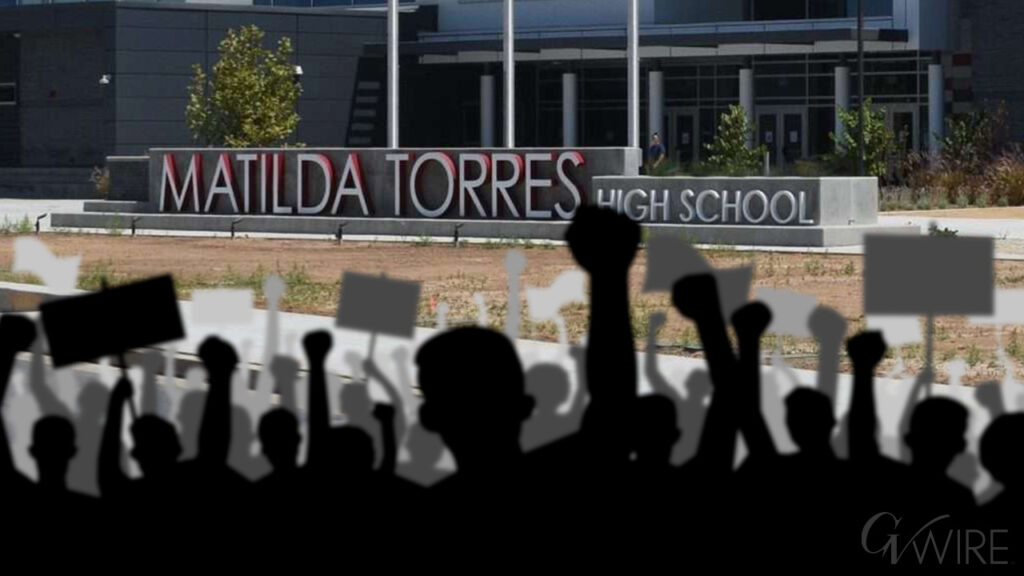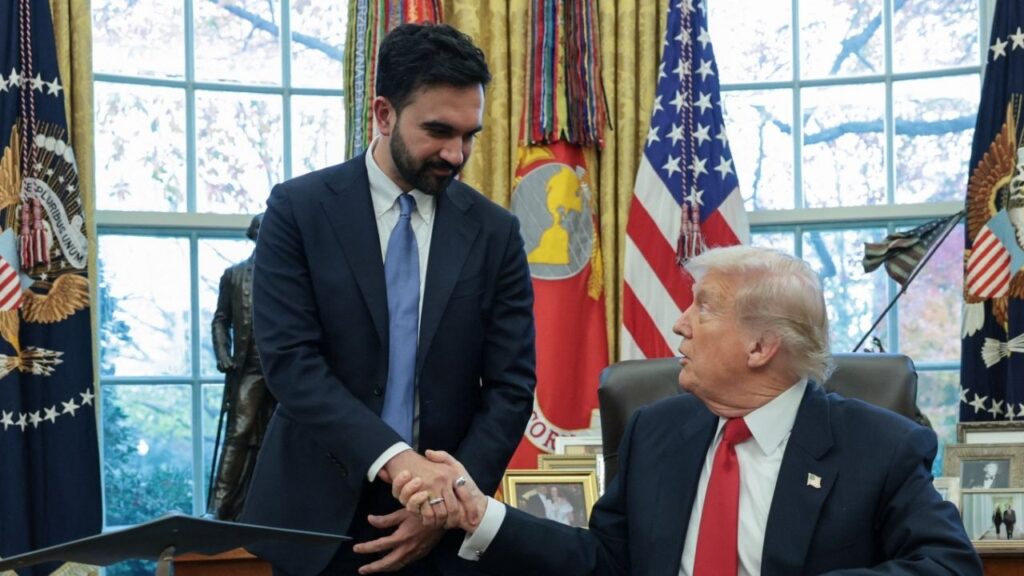Palestinians walk past the rubble of destroyed buildings, amid a ceasefire between Israel and Hamas, in Gaza City, October 16, 2025. (Reuters/Dawoud Abu Alkas TPX IMAGES OF THE DAY)
Share
|
Getting your Trinity Audio player ready...
|
Israel launched a series of strikes in Gaza on Sunday and said it was halting aid into the enclave in response to attacks on its forces, the military said, in the most serious test yet of this month’s U.S.-brokered ceasefire.
Residents in Gaza and local health authorities said Israeli airstrikes and tank fire across the enclave killed at least 18 people, including at least one woman.
The Israeli military said it struck Hamas targets including a tunnel, weapons depots and its militants.
Israeli Prime Minister Benjamin Netanyahu said he had ordered the military to respond forcefully to what he described as Hamas’ violations of the ceasefire. The military said militants in the southern area of Rafah had launched an anti-tank missile and fired on its soldiers.
Path to Peace Is Uncertain
The armed wing of Hamas said it remained committed to the ceasefire agreement, was unaware of clashes in Rafah, and had not been in contact with groups there since March.
An Israeli security official said that the transfer of aid into Gaza has been halted until further notice, following what he described as Hamas’ blatant violation of the ceasefire agreement.
Fearing the truce may collapse, some Palestinians rushed to buy goods from a main market in Nuseirat camp and families quit their homes in Khan Younis further south, after airstrikes hit nearby.
The strikes were reminiscent of Israel’s response to what it viewed as serious violations of its ceasefire with Hamas’ Lebanese ally Hezbollah in late 2024, less than a week after it came into effect and after days of mutual accusations of truce breaches, though that ceasefire has since largely held.
But formidable obstacles remain in the way of a durable peace in Gaza, where a ceasefire collapsed in March after nearly two months of relative calm when Israel unleashed a barrage of airstrikes.
Dispute Over Bodies of Deceased Hostages
The new ceasefire took effect on October 11, halting two years of war, but the Israeli government and Hamas have been accusing each other of violations of the ceasefire for days.
Defense Minister Israel Katz said the “yellow line” to where Israeli forces had pulled back under the ceasefire agreement would be physically marked and that any violation of the ceasefire or attempt to cross the line would be met with fire.
Hamas detailed what it said was a series of violations by Israel that it says have left 46 people dead and stopped essential supplies from reaching the enclave.
On Saturday, Israel said the Rafah border crossing between Gaza and Egypt, which had been expected to be reopened this week, would remain closed and that its reopening would depend on Hamas fulfilling its obligations under the ceasefire.
Israel says Hamas is being too slow in handing over bodies of deceased hostages. Hamas last week released all 20 living hostages it had been holding and in the following days has handed over 12 of the 28 deceased captives.
Hundreds of Thousands Affected By Famine
The group says it has no interest in keeping the bodies of remaining hostages and that special equipment is needed to recover corpses buried under rubble.
The Rafah crossing has largely been shut since May 2024. The ceasefire deal also includes the ramping up of aid to Gaza, where hundreds of thousands of people were determined in August to be affected by famine, according to the IPC global hunger monitor.
The crossing has in previous ceasefires functioned as a key conduit for humanitarian aid to flow into the enclave.
Although the flow of aid through another crossing had, until Sunday’s decision to halt aid, increased significantly since the ceasefire began, the United Nations says far more is needed.
Key questions of Hamas disarming, the future governance of Gaza, the make-up of an international “stabilization force”, and moves towards the creation of a Palestinian state have yet to be resolved.
—
(Reporting by Nidal Al-Mughrabi, Maayan Lubell, Jaidaa Taha, Muhammad Al Gebaly, Alexander Cornwell, Steven Scheer and Ahmed Tolba; Writing by Andrew Mills and Maayan Lubell; Editing by Philippa Fletcher and David Holmes)


